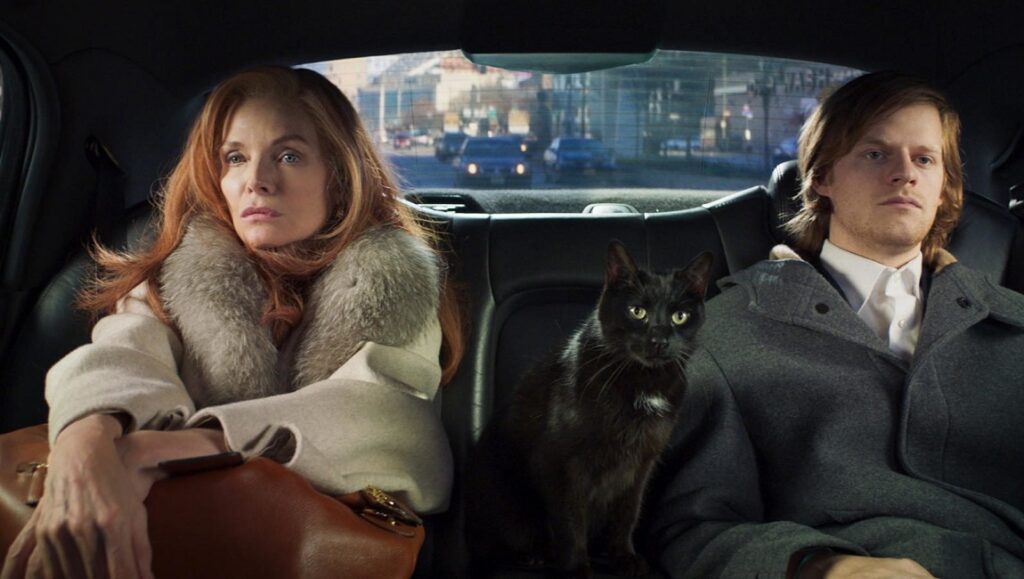French Exit is an absolute disaster. The end.
It takes truly talented people both in front of and behind the camera to make something as abysmal as French Exit, a misfire of epic proportions. Director Azazel Jacobs, while not exactly a household name, certainly showed promise with his previous features, including Terri and The Lovers; Patrick DeWitt, a critically acclaimed novelist, wrote the screenplay, an adaptation of his own award-winning 2018 book; the stacked cast includes Michelle Pfeiffer, Lucas Hedges, and Tracy Letts. Hell, there’s even a cat on hand to provide wide-eyed reaction shots whenever the film needs to goose its cuteness. It’s hard to place blame on any one specific individual here when everyone is clearly at fault, starting with a screenplay that steadfastly refuses to be cinematic, clinging to the page like a dryer sheet on a flannel shirt. It’s less of an adaptation that a rote transposition, seemingly little consideration given to the material’s fit within the film medium.
In adapting his story of a New York socialite (Pfeiffer) who flees to Paris with her somnambulant son (Hedges) after losing her deceased husband’s fortune, DeWitt seems to be under the impression that because his novel traffics in the alien ways of both the upper-class and the supernatural (don’t ask), his characters are allowed to speak like they literally stepped off the page. It’s an obnoxious affectation, done no favors by a cast who seizes the opportunity to give in to their worst instincts. Pfeiffer goes for caricature, all breathy sighs and dagger eyes, stretching out each syllable in every word to its breaking point; Hedges opts for zombie-mode; Letts seems happy just to be doing voiceover work as the cat, his screen time limited to that of a corpse. Yes, you read all of that correctly. They were clearly given no coherent direction by Jacobs, who is working in a key that can best be described as Wes Anderson minus the charm, wit, or visual creativity, crossed with Scoop-era Woody Allen.
In truth, it’s understandable that Jacobs is never able to fully get a handle on the material, what with characters that are nothing but a collection of quirks and the film’s endless supply of whiplash-inducing tonal shifts. How does one juggle a story that basically plays mental illness for laughs but also tries to wring genuine emotion from its portrait of an emotionally fucked-up family? As presented here, no one and nothing in this film is remotely relatable. Throw in a horny psychic, a frozen dildo, and a suicide note that lovingly details a homeless man’s penis, and the the the film officially rids itself of any semblance of coherence. Valerie Mahaffey, popping up as a clingy friend and neighbor, seems to be the only one who understands the absolute shitshow that she is in, giving a performance of such daftness that one can’t help but perk up a little whenever she arrives on screen. She and she alone is innocent; everyone else must atone for the sin that is French Exit. Mon Dieu.
Originally published as part of NYFF 2020 — Dispatch 7.


Comments are closed.